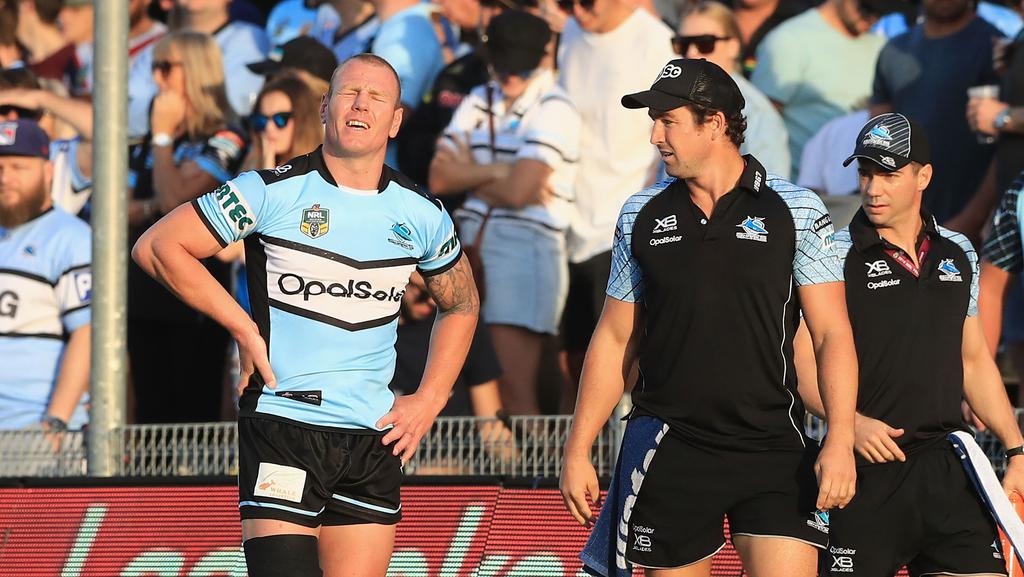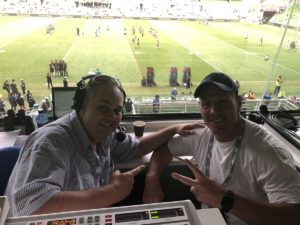You’ve got an important game today. It’s critical that you play as well as you can. Your team needs you at your best. But you’ve woken up feeling rotten. Maybe a sore throat. Maybe a cold. Maybe an upset gut. Or you have had a terrible row with a loved one. Or your whole week has been a shocker and you are down in the dumps. What are you going to do? You know that the way that you are feeling is going to have a big negative impact on your contribution during the game. Is there anything that you can do to pull yourself out of the hole that you are in and enable you to do heroic things for your team?
Some “experts” give terrible advice

Luke Lewis, former National Rugby League great for Penrith and Cronulla Sutherland, (and now professional radio NRL “expert” commentator), thinks that the situation is not hopeless. He believes that sporting stars can still shine on days where they are feeling horrible. He revealed his secret to playing well when you are feeling crap on his Radio National NRL Grandstand program a few weeks back. I’m not normally one to take too much notice of former champion “expert” commentators. Often their advice and analysis seems so terrible it makes one wonder how they ever managed to pay the game let alone achieve champion status.
“They need to score first in the second half.”
“They need a good spray from their coach at half time.”
“It’s all about attitude… and commitment… and doing it for their mates.”
While such trite little gems that come from stock “expert” commentators might be about as worthless as white crayons the suggestions made by Lewis on the subject of rising to the occasion when you feel like you don’t even want to be there seemed to make real sense to me.
Vomiting in the locker rooms
I was a very average rugby and rugby league player. But I remember well the difference between feeling rotten and feeling terrific before a game of footy. When I felt great I was capable of playing quite well. But when I was feeling terrible I was pretty useless on the field. More often than not I was useless. I was an anxious rugby player. I wasted so much energy puking for hours on the morning before a game that I barely had enough strength left to scratch myself, let alone play well, for my team after the first whistle was blown. I clearly remember the best game of rugby I ever played. Surprise surprise. On that day I was feeling fantastic before I ran onto the field! That was the day that early in the morning I managed to pass my driving license test (at the first attempt) just prior to the game. By the time I had passed my test, attached my “P” plates to my old Mazda 1300, and driven myself to the rugby park I was feeling on top of the world! No vomiting in the dressing sheds on that day much to the surprise of my teammates.

As a rugby front row forward… a nervous front row forward… I didn’t score a lot of tries during my footy career. One per season was about my try-scoring allotment. Well, on that day (the day I passed my driving test) this little nervous front row forward managed to score no less than three tries in the one game. Three tries! Unheard of! I was on fire. Unstoppable. I should have scored a fourth try as well. Late in the game I ran a clever angle off the inside elbow of my team’s fly-half and screamed for the ball just as a pathway to the try line opened up in front of me. I was so overconfident and sure that I was about to score my fourth try of the game that I forgot to catch the ball. Yup. My dropping the pass with the try line wide open was a teensy bit embarrassing but hey, I already had three in the bank, so my clumsy hooker moment was not going to bother me one little bit.
Okay, so the Luke Lewis tip that I heard on Radio ABC was not brain surgery but, quite honestly, the best coaching tips rarely are. Luke’s comments were pure common sense… but common sense can be a rare commodity in the coaching and expert circles of many professional sports. For me though, Lewis’ advise should be heeded by every athlete who loves to play sport, whether they are kids in the 12D basketball team or top-level pros.

Lewis said, in paraphrase, if you wake up on the morning of a game feeling crap and you don’t even feel like playing, it’s not time to start panicking. Just focus on what you bring to the team. Figure out, in quite specific terms, what are the measurable things that you usually do that your team relies on to perform at its best. Do you specialize in line breaks in rugby? Are you a lethal mid-field tackler in rugby league? Are you an expert shot blocker or ball pilferer (steal expert) in basketball? Do you measure your success in numbers of successful completed tackles in soccer?
Get rid of the mental fog
When you have decided upon three things that your team rely on for you to bring to the game then set an achievable target for each of those things. Your target, if you were a Rugby League player, could be to complete six, ten-metre hit ups in the first twenty minutes… or three off loads in the first half… or ten tackles of the opposition’s star player in the game. Your targets can be anything… anything that, once completed, ensures that you have done your job on the field. It sounds simple. Almost too simple. The problem with feeling crap before a game is that feelings of crapness lower an athlete’s confidence level and also create confusion about what their role is. The trick is getting rid of the mind fog! Focusing on a small number of things that the player does well and then busting their gut to ensure that these small but reasonable targets are achieved, is a massive confidence booster and provider of clear proof that to the athlete that he or she has done a good job.
Say goodbye to a rev up from the coach (or your mum or dad or your boyfriend or girlfriend). That stuff is bullshit. Don’t bother listening to motivational tapes or your favourite music. Forget about hurtling into your teammates in the pre-game warm-up. Give a big piss off to passion… and doing it for your mates. Especially, forget about trying hard to “do the little one percenters” that so many experts tell athletes to focus on (Luke Lewis may not agree with this comment… but I don’t care. This is my spin on his advice here). Focus specifically on the critical targets you have set for yourself (in other words focus on the 100 percenters, not the one percenters) and with each step you achieve towards achieving your target (each tackle completed, each line break made, each pass successful sent and received) give yourself a mighty pat on the back and tell yourself that you are doing your job!
Thanks to Luke Lewis for providing some of the best advice I have heard in a dog’s age from an expert commentator. Follow his tip and you will do a heroic job on even your worst days.

Leave a Reply